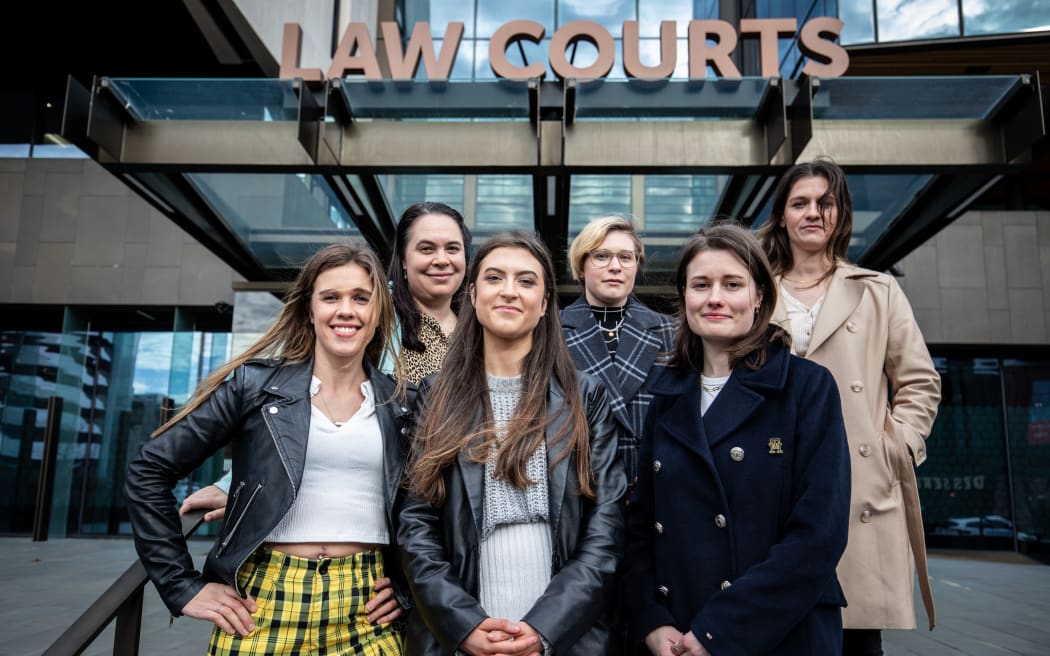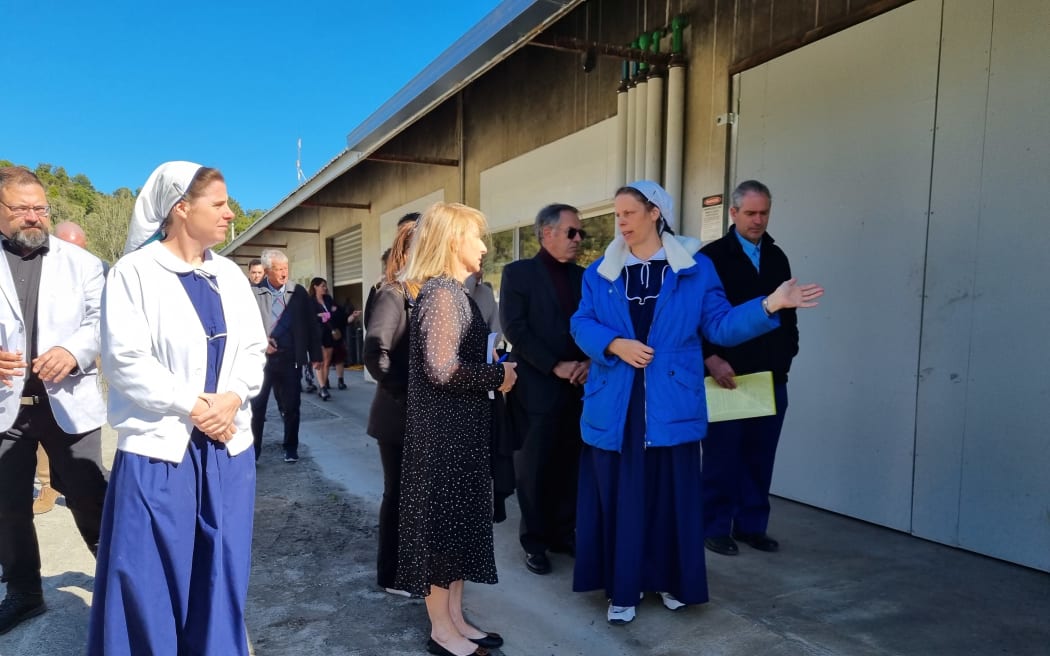Work 'unrelenting, hard': Court finds former Gloriavale women were employees

Six former Gloriavale women were employees working extremely hard under punishing conditions for years on end at the Christian community, in an experience that has left deep scars, the Employment Court has found.
Serenity Pilgrim, Anna Courage, Rose Standtrue, Crystal Loyal, Pearl Valor and Virginia Courage took Gloriavale's leaders to court arguing they lived in servitude working on the West Coast commune's domestic teams and were not community volunteers.
In a judgement released today, the Employment Court's Chief Judge Christina Inglis found the women were employees while working on the teams, after being primed for the job and taught from birth to submit to male leadership in all aspects of their lives.
"The evidence disclosed that none of the plaintiffs were given a choice about whether they worked on the teams or not. Broadly speaking, that decision had been assigned at birth, having been born female," the judgement said.
The women carried out work from a young age - around six - which incrementally increased as they got older, progressing to fulltime work on the teams as soon as they left school, around the age of 15.
The women were responsible for preparing food, cooking, cleaning and doing the laundry for Gloriavale's 600 members, under what they argued was an all-pervading regime of secular and religious control.
In a typical week in 2018, Judge Inglis noted the female workforce in the kitchen produced more than 11,000 meals, while laundry workers washed at least 17,000 items.
"The evidence clearly established that the work required to produce these outcomes was unrelenting, grinding, hard, and physically and psychologically demanding," she said.
"It is apparent that for the plaintiffs their time at Gloriavale, and their experience working there, has left deep scars.
"I was left with no doubt that they worked extremely hard, and under punishing conditions, during their time on the teams.
"I have no difficulty concluding that, when working on the teams, the plaintiffs were not carrying out work for their individual families or some notional big family."

Inglis said all of the women were born into the community and imbued from birth with well accepted norms as to their place in the community and the work they would be expected to do as they grew up.
"In this regard the plaintiffs knew from an early age that they would work on the teams, and their early life as girls was primed to that end."
She said the women did the rostered work they were directed to without complaint and there were well understood consequences if they failed to show up.
The evidence established that the plaintiffs worked under the strict direction and control of the Overseeing Shepherd, through his subordinate leadership team, Inglis said.
"Each of the plaintiffs was born into the community and they were taught from birth that they were to submit to male leadership in all aspects of their life," she said.
"Each had been brought up to understand that this was how their lives would unfold, and that they were to do as the male leadership required.
"The plaintiffs worked under the strict direction and control of the Overseeing Shepherd and were subordinate to him. They worked strictly as required, for long hours and for years on end. The nature of the work was akin to working in a large scale hostel, which would otherwise be paid for."
Inglis said the consequences of not doing what was expected and "falling out of unity" were dire and well-known - "exclusion from the community, from all that was familiar, from family and friends, and into a world they know little about, were ill-equipped to navigate and had been taught to fear".
Inglis noted Overseeing Shepherd Howard Temple accepted children were educated so they were not equipped for the outside world, and that part of the leadership strategy was to ensure that children were kept separate from the outside world in order to keep them within the community.

In court, Gloriavale's defendants - Overseeing Shepherd Howard Temple and Shepherds Samuel Valor, Faithful Pilgrim, Noah Hopeful and Stephen Standfast - strongly contested the women's claims, maintaining employment relationships were fundamentally at odds with members' Christian way of life.
They argued a court declaration the women were employees would up-end Gloriavale's communal economy, violating members' deeply-held religious beliefs.
Inglis said it became apparent that leaders' concern about a finding of employment status was less about incompatibility with religious belief and more about financial capacity to pay for the work women did on the teams.
"I make the obvious point that capacity to pay is not one of the factors Parliament deems relevant to assessing whether a worker is in an employment relationship," she said.
"In any event, it is notable that the evidence before the court of the community's finances, including its extensive acquisition of additional property, does not sit well with a claimed lack of capacity to pay."
In July 2021 Labour inspectors concluded there was no employment relationship between the community and its members.
Today's judgement follows a similar ruling by Chief Judge Christina Inglis last year, in which she found three former Gloriavale men were employees from the age of six, working long hours on farms and in factories at Haupiri.
The Gloriavale Christian community intends to appeal the Employment Court ruling.
In a statement, Overseeing Shepherd Howard Temple said Gloriavale's leaders believed the decision was wrong and they intended to lodge an appeal.
He said it had significant and wide-ranging implications beyond Gloriavale, including how faith-based communities, iwi and whānau choose to live and structure their household responsibilities.